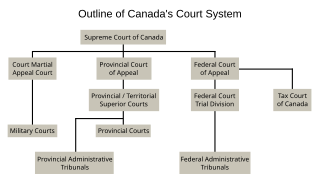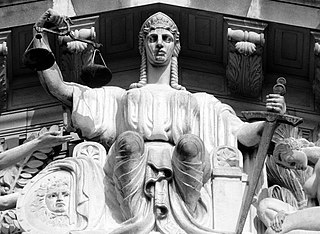Supreme Court of Canada
Appeal Allowed
The Professions Tribunal is given no function other than that of a general tribunal of appeal in respect of all professions covered by the Professional Code and it was, therefore, impossible to see its final appellate jurisdiction as part of an institutional arrangement by way of a regulatory scheme for governance of the various professions. [3]
Laskin C.J., writing for a unanimous court, held that provincial legislatures had no jurisdiction to impose a privity clause in order to shield its tribunals from judicial review due to s. 96 of the Constitution Act, 1867:
[W]here a provincial Legislature purports to insulate one of its statutory tribunals from any curial review of its adjudicative functions, the insulation encompassing jurisdiction, such provincial legislation must be struck down as unconstitutional by reason of having the effect of constituting the tribunal a s. 96 court. [4]
It is true that this is the first time that this Court has declared unequivocally that a provincially-constituted statutory tribunal cannot constitutionally be immunized from review of decisions on questions of jurisdiction. In my opinion, this limitation, arising by virtue of s. 96, stands on the same footing as the well-accepted limitation on the power of provincial statutory tribunals to make unreviewable determinations of constitutionality. There may be differences of opinion as to what are questions of jurisdiction but, in my lexicon, they rise above and are different from errors of law, whether involving statutory construction or evidentiary matters or other matters. It is now unquestioned that privative clauses may, when properly framed, effectively oust judicial review on questions of law and, indeed, on other issues not touching jurisdiction. However, ... s. 96 is in the British North America Act and ... it would make a mockery of it to treat it in non-functional formal terms as a mere appointing power... [5]
This judgment stood in contrast to CUPE v. New Brunswick Liquor Corp. , [1979] 2 SCR 227 decided only two years earlier. In that case, Dickson J., speaking for a unanimous court, called for greater deference to administrative decisions and to place less emphasis on jurisdiction.
Section 33 of the Canadian Charter of Rights and Freedoms is part of the Constitution of Canada. It is commonly known as the notwithstanding clause, or as the override power, and it allows Parliament or provincial legislatures to temporarily override certain portions of the Charter.

Ford v Quebec (AG), [1988] 2 SCR 712 is a landmark Supreme Court of Canada decision in which the Court struck down part of the Charter of the French Language, commonly known as "Bill 101". This law had restricted the use of commercial signs written in languages other than French. The court ruled that Bill 101 violated the freedom of expression as guaranteed in the Canadian Charter of Rights and Freedoms.
Canadian federalism involves the current nature and historical development of federal systems in Canada.
In common law systems, a superior court is a court of general competence which typically has unlimited jurisdiction with regard to civil and criminal legal cases. A superior court is "superior" relative to a court with limited jurisdiction, which is restricted to civil cases involving monetary amounts with a specific limit, or criminal cases involving offenses of a less serious nature. A superior court may hear appeals from lower courts.

The court system of Canada forms the judicial branch of government, formally known as "The Queen on the Bench", which interprets the law and is made up of many courts differing in levels of legal superiority and separated by jurisdiction. Some of the courts are federal in nature, while others are provincial or territorial.
In Canadian law, a reference question or reference case is a submission by the federal or a provincial government to the courts asking for an advisory opinion on a major legal issue. Typically the question concerns the constitutionality of legislation.
Canadian constitutional law is the area of Canadian law relating to the interpretation and application of the Constitution of Canada by the courts. All laws of Canada, both provincial and federal, must conform to the Constitution and any laws inconsistent with the Constitution have no force or effect.

The Supreme Court of Canada was founded in 1875 and has served as the final court of appeal in Canada since 1949. Its history may be divided into three general eras. From its inception in 1875 until 1949, the Court served as an intermediate appellate court subject to appeal to the Judicial Committee of the Privy Council in Britain. Following 1949, the Court gained importance and legitimacy as the court of last resort in Canada, establishing a greater role for the Canadian judiciary. In 1982, the introduction of the Canadian Charter of Rights and Freedoms significantly changed the role of the Court in Canadian society, by providing the Court with greater powers of oversight over Parliament and through formal recognition of civil rights including aboriginal rights and equality rights.

Caloil Inc v Canada (AG) is a leading constitutional decision of the Supreme Court of Canada on the Trade and Commerce power under section 91(2) of the Constitution Act, 1867. The Court upheld a federal law prohibiting the transport or sale of imported oil in a certain region of Ontario.

Reference Re Residential Tenancies Act (Ontario), [1981] 1 S.C.R. 714 is a leading Supreme Court of Canada decision on the jurisdiction of superior courts provided by section 96 of the Constitution Act, 1867. The Court formulated a three-step test for determining whether an administrative body was encroaching upon the jurisdiction of the superior courts.

Quebec (AG) v Blaikie , [1979] 2 S.C.R. 1016 is a leading decision of the Supreme Court of Canada on language rights in the Constitution Act, 1867. The Court held that the sections of Quebec's Charter of the French Language, which required that provincial laws be enacted in French only, violated section 133 of the Constitution Act, 1867.

Canada (AG) v Mossop, [1993] 1 SCR 554 was the first decision of the Supreme Court of Canada to consider equality rights for gays. The case is also significant as one of Justice L'Heureux-Dube's most famous dissents where she proposes an evolving model of the "family".

Canadian Union of Public Employees, Local 963 v New Brunswick Liquor Corp, [1979] 2 SCR 227 is a leading case decided by the Supreme Court of Canada. This case first developed the patent unreasonableness standard of review in Canadian administrative law.
Canadian administrative law is the body of law that addresses the actions and operations of governments and governmental agencies in Canada. That is, the law concerns the manner in which courts can review the decisions of administrative decision-makers (ADMs) such as a board, tribunal, commission, agency or minister.

Exclusion of judicial review has been attempted by the Parliament of Singapore to protect the exercise of executive power. Typically, this has been done though the insertion of finality or total ouster clauses into Acts of Parliament, or by wording powers conferred by Acts on decision-makers subjectively. Finality clauses are generally viewed restrictively by courts in the United Kingdom. The courts there have taken the view that such clauses are, subject to some exceptions, not effective in denying or restricting the extent to which the courts are able to exercise judicial review. In contrast, Singapore cases suggest that ouster clauses cannot prevent the High Court from exercising supervisory jurisdiction over the exercise of executive power where authorities have committed jurisdictional errors of law, but are effective against non-jurisdictional errors of law.
The Preamble to the Constitution Act, 1867 provides:

An ouster clause or privative clause is, in countries with common law legal systems, a clause or provision included in a piece of legislation by a legislative body to exclude judicial review of acts and decisions of the executive by stripping the courts of their supervisory judicial function. According to the doctrine of the separation of powers, one of the important functions of the judiciary is to keep the executive in check by ensuring that its acts comply with the law, including, where applicable, the constitution. Ouster clauses prevent courts from carrying out this function, but may be justified on the ground that they preserve the powers of the executive and promote the finality of its acts and decisions.
Section 92(14) of the Constitution Act, 1867, also known as the administration of justice power, grants the provincial legislatures of Canada the authority to legislate on:
In Canada, judicial review is the process that allows courts to supervise administrative tribunals' exercise of their statutory powers. Judicial review of administrative action is only available for decisions made by a governmental or quasi-governmental authority. The process allows individuals to challenge state actions, and ensures that decisions made by administrative tribunals follow the rule of law. The practice is meant to ensure that powers delegated by government to boards and tribunals are not abused, and offers legal recourse when that power is misused, or the law is misapplied. Judicial review is meant to be a last resort for those seeking to redress a decision of an administrative decision maker.









